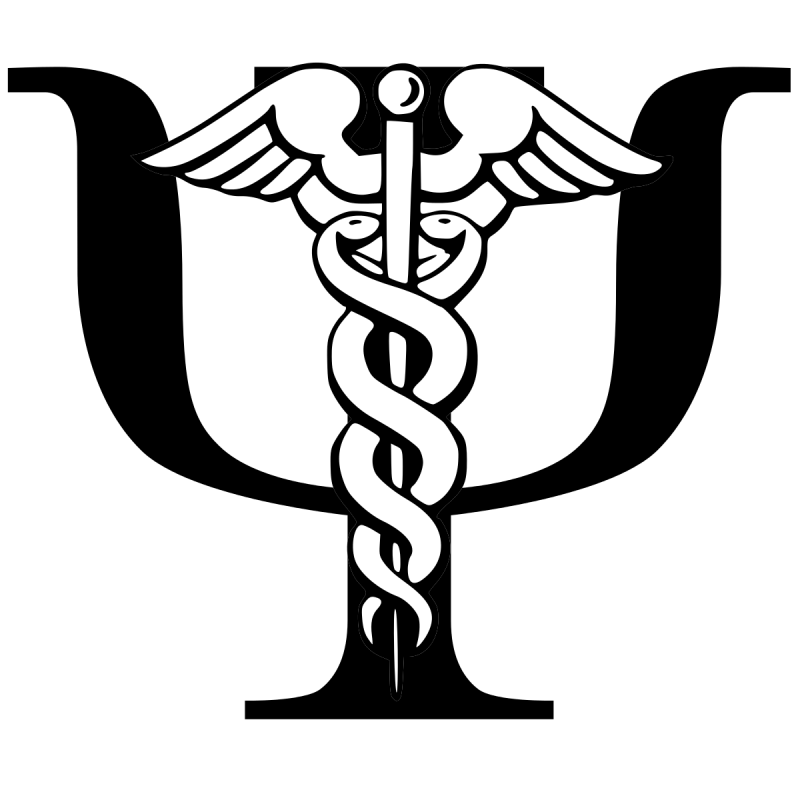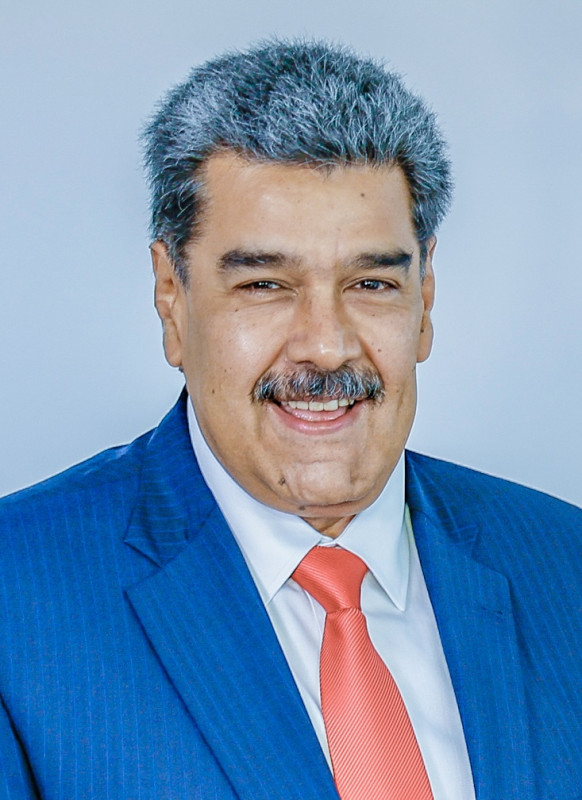Portland, Oregon is the state's most populous city, situated in the Pacific Northwest at the junction of the Willamette and Columbia rivers. With a population of over 652,000 in 2020, it ranks as the 28th largest city in the United States. The Portland metropolitan area, home to over 2.54 million residents, constitutes the 26th-largest metropolitan area nationwide and houses almost half of Oregon's population. Portland serves as the county seat of Multnomah County, the most populous county in Oregon.
1900: Portland population increase
Around 1900, Portland's population began to increase, tripling from nearly 100,000.
1903: Olmsted's Report to the Portland Park Board
In 1903, John Charles Olmsted presented his Report to the Portland Park Board, which marked an early stage of parks and greenspace planning.
1904: City consults with urban planners
In 1904, the city of Portland consulted with urban planners, leading to the development of Washington Park and the 40-Mile Loop greenway.
1905: Oaks Amusement Park Opening
In 1905, Oaks Amusement Park opened and was known as the "Coney Island of the Northwest".
1905: Lewis and Clark Centennial Exposition
In 1905, Portland prepared for the Lewis and Clark Centennial Exposition, spurring the movement to brand the city as the "Rose City".
1906: Washington High School opens
In 1906, Washington High School opened in Portland.
1908: Reed College founded
In 1908, Reed College, a private liberal arts college, was founded and is located within Southeast Portland.
1910: Hawthorne Bridge built
In 1910, the Hawthorne Bridge was built in downtown Portland, and it is now a designated historic landmark.
1912: Legacy Emanuel founded
In 1912, Legacy Emanuel, a hospital operated by Legacy Health, was founded in Northeast Portland.
1912: Steel Bridge namesake
In 1912, Portland's Steel Bridge was established, this Steel Bridge is the successor to the first steel bridge on the West Coast.
1913: Broadway Bridge built
In 1913, the Broadway Bridge was built in downtown Portland, and it is now a designated historic landmark.
1923: Shriners Hospital for Children established
In 1923, Shriners Hospital for Children was established as a small children's hospital in Portland.
1923: Laurelhurst Theater in operation
The Laurelhurst Theater has been in operation since 1923.
1924: Portland Youth Philharmonic established
In 1924, the Portland Youth Philharmonic was established as the first youth orchestra in the United States.
1926: Burnside Bridge and Ross Island Bridge built
In 1926, the Burnside Bridge and the Ross Island Bridge were built in the downtown area of Portland, Oregon.
1927: Bagdad Theater and Pub built
In 1927, the Bagdad Theater and Pub, a former vaudeville theater, was built by Universal Studios.
1930: Portland population in 1930
By 1930, Portland's population had tripled from 100,000 to 301,815.
September 2, 1931: "Great Renumbering"
On September 2, 1931, the "Great Renumbering" occurred in Portland. This standardized street naming patterns and divided Portland into five "general districts" and changed house numbers.
1931: St. Johns Bridge built
In 1931, the St. Johns Bridge, a Gothic revival suspension bridge, was built north of the downtown area of Portland, Oregon.
1940: Portland's African-American Population
In 1940, Portland's African-American population was approximately 2,000 and largely consisted of railroad employees and their families.
1940: White Population in Portland
In 1940, Whites were over 98% of the city's population in Portland.
September 10, 1942: Pacific International Livestock Exposition Processing
From May through September 10, 1942, the Pacific International Livestock Exposition operated as an assembly center, processing people from the city, northern Oregon, and central Washington.
May 1948: Vanport Flood
In May 1948, the Vanport flood destroyed Vanport, eliminating the only integrated neighborhood, and leading to an influx of blacks into the northeast quadrant of the city.
1948: Vanport Flood and Displacement
After World War II, the Vanport flood in 1948 displaced many African Americans in Portland.
1949: Snowfall totals
In 1949 and 1950, the airport recorded a snowfall of 44.5 inches (113 cm) in Portland.
February 2, 1950: Lowest overnight temperature
On February 2, 1950, Portland recorded its lowest overnight temperature ever at −3 °F (−19 °C).
1952: Fred L. Peterson elected mayor
In 1952, Fred L. Peterson was elected as the mayor of Portland. He was the last Republican to be elected mayor of the city.
1956: Voters reject fluoridation
In 1956, Portland voters rejected fluoridation of the public water supply.
1957: Life magazine article and Portland Exposé film
In 1957, Life magazine published an article on Portland's corruption and crime, which was later adapted into the fictionalized film Portland Exposé.
1958: Portland Development Commission Created
In 1958, Portland voters created the Portland Development Commission (now Prosper Portland) to serve as the city's urban renewal agency.
1958: Steam locomotives donated to city
In 1958, the city of Portland received operating mainline steam locomotives, donated by the railroads that ran them.
1962: Voters reject fluoridation again
In 1962, Portland voters again rejected fluoridation of the public water supply.
1963: Association with "Louie Louie"
In 1963, the song "Louie Louie" became famously associated with Portland bands such as the Kingsmen and Paul Revere & the Raiders.
July 1965: Previous record high temperature
In July 1965, the previous high temperature record of 107 °F (42 °C) was set in Portland.
1966: Marquam Bridge built
In 1966, the double-decker Marquam Bridge was built in the downtown area of Portland, Oregon.
December 30, 1968: Lowest Daytime High Temperature Recorded
On December 30, 1968, Portland recorded its lowest daytime high temperature at 14 °F (−10 °C).
1969: State-directed metropolitan planning
In 1969, Portland pioneered state-directed metropolitan planning, a program instituted statewide to compact the city's urban growth boundaries.
1972: Neil Goldschmidt becomes mayor
In 1972, Neil Goldschmidt took office as mayor, advocating for bringing housing and vitality back to downtown Portland.
1973: Oregon's urban growth boundary law
In 1973, Oregon established the "urban growth boundary" law, limiting boundaries for large-scale development in each metropolitan area.
1973: Statewide land conservation policies adopted
In 1973, statewide land conservation policies were adopted under Governor Tom McCall, including the requirement for an urban growth boundary for every city and metropolitan area.
1973: Opening of Fremont Bridge
In 1973, the double-decker Fremont Bridge opened in downtown Portland.
1974: Tom McCall Waterfront Park built
In 1974, the 37-acre Tom McCall Waterfront Park was built along the length of the downtown waterfront after Harbor Drive was removed.
1974: Oregon Health & Science University formed
In 1974, the Oregon Health & Science University was formed as a university hospital.
1975: Last Republican in U.S. House of Representatives
1975 was the last time a Republican represented a significant portion of Portland in the U.S. House of Representatives prior to Lori Chavez-DeRemer's term.
1975: First pride festival
In 1975, Portland held its first pride festival on the Portland State University campus.
1975: Fareless Square begins
Starting in 1975, all transit service within downtown Portland was free, in an area known as Fareless Square.
1977: Trail Blazers win NBA championship
In 1977, the Portland Trail Blazers won the NBA championship.
1977: Portland Transit Mall opens
In 1977, the Portland Transit Mall opened on Fifth and Sixth avenues in downtown, primarily for bus traffic.
1977: Trail Blazers sell out streak begins
In 1977, the Trail Blazers began selling out every home game.
1978: Voters vote in favor of fluoridation
In 1978, Portland voters voted in favor of fluoridation, only to have it repealed in 1980.
1979: Connie McCready becomes interim mayor
In 1979, Connie McCready became the interim mayor of Portland.
1979: Portland adopts urban growth boundary
In 1979, Portland adopted its urban growth boundary, separating urban areas from farmland and encouraging high-density development.
1979: Housing Market Slows in 1979
In 1979, the housing market slowed, causing a drop in demand for the city and state timber industries.
May 18, 1980: Mount St. Helens Eruption Ashfall
On May 18, 1980, Portland was dusted with volcanic ash following the eruption of Mount St. Helens.
1980: Connie McCready leaves office
In 1980, Connie McCready left office as interim mayor, marking the last time a Republican held the position even on an interim basis.
1980: Voters repeal 1978 vote in favor
In 1980, Portland voters repealed a 1978 vote that was in favor of fluoridation.
1980: Percent for art ordinance passed
In 1980, Portland's city council passed a percent for art ordinance to allocate funding for public artwork in major city projects' capital budgets.
August 1981: Previous record high temperature
In August 1981, the previous high temperature record of 107 °F (42 °C) was matched in Portland.
1981: Washington High School closes
In 1981, Washington High School, along with Adams and Jackson High Schools, closed in Portland.
1986: MAX Light Rail opens
In 1986, the MAX (Metropolitan Area Express) light rail system opened in Portland, connecting the city and its suburbs.
1988: Murder of Mulugeta Seraw
In 1988, Mulugeta Seraw, an Ethiopian immigrant, was killed by three skinheads in Portland.
1990: Kurt Cobain meets Courtney Love at Satyricon Nightclub
In 1990, Nirvana frontman Kurt Cobain first encountered his future wife and Hole frontwoman Courtney Love at the Satyricon nightclub in Portland.
1990: Baseline year for emission reduction
In 1990, Portland established the baseline year for measuring greenhouse gas emission reductions as part of its climate action plan, aiming to cut emissions to 80% below this level by 2050.
March 25, 1993: Earthquake Impact on Portland
On March 25, 1993, a 5.6-magnitude earthquake struck and impacted the Portland area.
1995: Law requiring cities to expand UGBs
In 1995, the State passed a law requiring cities to expand Urban Growth Boundaries to provide enough undeveloped land for a 20-year supply of future housing at projected growth levels.
1995: Trail Blazers sell out streak ends
In 1995, the Trail Blazers streak of selling out every home game ended.
1995: Intel Investments in 1995
In 1995, the technology industry, specifically Intel, began to emerge in Portland, bringing over US$10 billion in investments.
1995: Regional bond measure passed
In 1995, voters in the Portland metropolitan region passed a regional bond measure to acquire valuable natural areas for fish, wildlife, and people.
2000: Population Rise After 2000
After 2000, Portland experienced significant growth, with a population rise of over 90,000.
2000: Racial Demographics of High Schools
As of the 2000 census, three of Portland's high schools (Cleveland, Lincoln and Wilson) were over 70% White, while Jefferson High School was 87% non-White.
2001: GDP growth
Between 2001 and 2012, Portland's gross domestic product per person grew by fifty percent.
2001: Nisqually earthquake
In 2001, Portland was impacted by the 6.8-magnitude Nisqually earthquake.
2001: Portland Streetcar opens
In 2001, the first line of the city-owned Portland Streetcar opened, serving routes in the Central City.
2003: Official "Rose City" nickname
In 2003, "Rose City" or "The City of Roses" became Portland's official nickname.
2004: Multnomah County votes against Oregon Ballot Measure 36
In 2004, 59.7 percent of Multnomah County voters cast ballots against Oregon Ballot Measure 36, which amended the Oregon Constitution to prohibit recognition of same-sex marriages.
2004: First World Naked Bike Ride
Since 2004, the World Naked Bike Ride is held each year in June.
April 28, 2005: Portland withdraws from Joint Terrorism Task Force
On April 28, 2005, Portland became the only city in the nation to withdraw from a Joint Terrorism Task Force.
2005: Streetcar line extended
Between 2005 and 2007, the first Portland Streetcar line was extended, operating from the South Waterfront District through Portland State University and north through the West End of downtown.
2006: LGB population in the country
In 2006, Portland was reported to have the seventh highest LGB population in the country, with 8.8% of residents identifying as gay, lesbian, or bisexual.
2007: Survey of White Residents
A 2007 survey concluded Portland's urban core has the highest percentage of White residents out of the 40 largest cities in the U.S.
2007: Transit Mall renovated
Between 2007 and 2009, the Portland Transit Mall was renovated and rebuilt, with light rail added.
2007: Legislature changes UGB law
In 2007, the legislature changed the Urban Growth Boundary law to require the maintenance of an estimated 50 years of growth within the boundary, as well as the protection of accompanying farm and rural lands.
June 26, 2008: Arrest of nude bicyclist
On June 26, 2008, a nude bicyclist was arrested, leading to charges that were later dismissed in November 2008.
November 2008: Charges dismissed against nude bicyclist
In November 2008, a Multnomah County judge dismissed charges against a nude bicyclist who was arrested on June 26, 2008, due to the city's "well-established tradition" of the World Naked Bike Ride.
2008: Public transit commutes
In 2008, 12.6% of all commutes in Portland were on public transit.
2008: Obama wins Portland
In 2008, Barack Obama, the Democratic candidate, won Portland in the presidential election, receiving 245,464 votes from city residents against John McCain's 50,614 votes.
2008: Oregon Brewers Festival attendance
In 2008, the Oregon Brewers Festival had over 70,000 attendees.
February 2009: WES Commuter Rail opens
In February 2009, the WES Commuter Rail opened in Portland's western suburbs, linking Beaverton and Wilsonville.
October 2009: Portland adopts climate action plan
In October 2009, the Portland City Council unanimously adopted a climate action plan to cut the city's greenhouse gas emissions to 80% below 1990 levels by 2050.
2009: Violent Crime Ranking
According to the FBI's Uniform Crime Report, Portland ranked 53rd in violent crime out of the top 75 U.S. cities with a population greater than 250,000 in 2009.
2009: Portland's White Population
In 2009, Portland had the fifth-highest percentage of White residents among the 40 largest U.S. metropolitan areas.
2009: Sam Adams becomes mayor
In 2009, Sam Adams became the first openly gay mayor of Portland.
2010: Language Spoken in Multnomah County
According to the Modern Language Association, in 2010, 80.9% of Multnomah County residents ages 5 and over spoke English as their primary language at home.
2010: Census Data
As of the 2010 census, there were 583,776 people living in Portland, with a population density of 4,375.2 people per square mile.
2010: Free rides limited
In 2010, free rides on Portland transit were limited to rail service only in the Fareless Square area.
2011: Drug Market
In 2011, Portland was dubbed the "deadliest drug market in the Pacific Northwest" due to drug related deaths.
2011: Portlandia series premiere
In 2011, the IFC sketch comedy series Portlandia premiered, satirizing the city's culture. The series ran for eight seasons until 2018.
2011: Timbers join MLS
In 2011, the Timbers joined MLS.
2012: GDP growth
Between 2001 and 2012, Portland's gross domestic product per person grew by fifty percent, more than any other city in the country.
2012: Obama wins Multnomah County
In 2012, Barack Obama, the Democratic candidate, again carried Portland, winning 256,925 votes from Multnomah county residents against Mitt Romney's 70,958 votes.
2012: Oregon Rail Heritage Center opens
In 2012, the Oregon Rail Heritage Center, a permanent home for the steam locomotives, opened adjacent to OMSI.
2012: Council votes to fluoridate water
In 2012, the Portland city council voted unanimously to begin fluoridation of the city's public water supply by 2014.
2012: Fare-free zone discontinued
In 2012, the fare-free zone was entirely discontinued in Portland.
2012: Second Streetcar line opens
In 2012, the second Portland Streetcar line opened, adding 3.3 miles of tracks on the east side of the Willamette River and across the Broadway Bridge.
May 21, 2013: Voters again reject fluoridation
On May 21, 2013, Portland voters again rejected fluoridation of the public water supply.
2013: Increase in calls to 911
Between 2013 and 2018, calls to 911 concerning "unwanted persons" have significantly increased in Portland.
2013: The Real World: Portland premiered on MTV
In 2013, MTV's reality show The Real World was shot in Portland for its 29th season, premiering as The Real World: Portland.
2013: The Guardian names Portland's music scene "most vibrant"
In 2013, The Guardian named Portland's music scene as one of the "most vibrant" in the United States.
2013: Murder Rate
In 2013, the murder rate in Portland averaged 2.3 murders per 100,000 people per year.
2013: Empirical Theater replaces OMNIMAX at OMSI
In 2013, the ultra-large-screen Empirical Theater replaced an OMNIMAX theater at the Oregon Museum of Science and Industry (OMSI).
2014: Planned fluoridation date
2014 was the planned date for Portland to begin fluoridation of the city's public water supply, as voted by the city council in 2012. However, fluoridation was rejected in a public vote in 2013.
2014: Landslide and Soil Liquefaction Risk Assessment in 2014
According to a 2014 report, over 7,000 locations within the Portland area are at high risk for landslides and soil liquefaction in the event of a major earthquake.
2014: Portland Population in 2014
By 2014, the population of Portland had risen by over 90,000 since 2000.
February 2015: City Council approves smoking ban
In February 2015, the City Council approved a total ban on smoking in all city parks and natural areas, which went into effect on July 1, 2015.
February 19, 2015: City council approves staffing the JTTF
On February 19, 2015, the Portland city council approved permanently staffing the JTTF with two of its city's police officers.
July 1, 2015: Ban on smoking in city parks
Effective July 1, 2015, the city of Portland implemented a total ban on smoking in all city parks and natural areas, including cigarettes, vaping, and marijuana.
September 2015: Orange Line begins operating
In September 2015, the Orange Line, the latest addition to the MAX light rail system, began operating and connecting Portland and Milwaukie.
2015: Unpaid parking citations
As of 2015, Portland was owed $32.4 million in unpaid parking citations due to the city government's refusal to collect more aggressively.
2015: Opening of Tilikum Crossing
In 2015, Tilikum Crossing opened. It is the first new bridge to span the Willamette River in Portland since 1973.
2015: Timbers win MLS Cup
In 2015, the Portland Timbers won the MLS Cup, marking the first male professional sports championship for a team from Portland since 1977.
2015: LGBT residents in Portland
In 2015, the city metro of Portland had the second highest percentage of LGBT residents in the United States, with 5.4% of residents identifying as gay, lesbian, bisexual, or transgender.
2015: Tilikum Crossing completion
In 2015, the completion of the Tilikum Crossing allowed the east-side Portland Streetcar line to complete a loop to the tracks on the west side of the river.
2015: Car theft recording began
The year 2015 marked the beginning of record-keeping for car thefts in Portland.
July 19, 2016: Biketown launches
On July 19, 2016, Biketown, a new bicycle-sharing system, launched in Portland with 100 stations in the city's central and eastside neighborhoods.
2016: Homicides in Portland
In 2016, Portland recorded 20 homicides.
2016: Sellwood Bridge built
In 2016, the Sellwood Bridge was built south of the downtown area of Portland, Oregon.
2017: Fault line risk assessment
According to a 2017 survey, Portland's fault lines were characterized as a potential hazard due to their proximities to population centers, and the potential of producing magnitude 7 earthquakes.
2017: Homicides in Portland
In 2017, Portland recorded 27 homicides.
2017: Apartment development projection
In 2017, developers projected an additional 6,500 apartments to be built in the Portland Metro Area over the next year.
2017: Crime rate in Old Town Chinatown
In 2017, the crime rate in Portland's Old Town Chinatown was several times above the city average.
2017: Murder Rate and Violent Crime
In 2017, the murder rate in the Portland Metropolitan statistical area was 2.6, and violent crime was 283.2 per 100,000 people per year.
June 6, 2018: South Portland addressing section approved
On June 6, 2018, the new South Portland addressing section was approved by the Portland City Council.
November 2018: Median housing price in Portland
In November 2018, the median housing price in Portland was $391,400.
December 2018: Portland's Brewery and Coffee Culture
As of December 2018, Portland has a major brewery industry and is home to 139 breweries/microbreweries, the 7th most in the nation. Additionally, the city has a robust coffee culture that now rivals Seattle and hosts over 20 coffee roasters.
2018: Record Number of 90-degree Days
In 2018, Portland recorded more 90-degree days than ever before.
2018: Portland ranked seventh in the United States by Brewers Association
In 2018, data compiled by the Brewers Association ranks Portland seventh in the United States for number of breweries.
2018: Portlandia series finale
In 2018, the IFC sketch comedy series Portlandia ended after eight seasons.
2018: Portlandia concluded in 2018
In 2018, the comedy series Portlandia, known for championing the city's counterculture, concluded its run.
2018: Dealing with homeless and mentally ill
In 2018, the police were increasingly dealing with homeless and mentally ill in Portland.
November 2019: Apartment rental costs reported
In November 2019, apartment rental costs in Portland were reported as $1,337 for a two-bedroom and $1,133 for a one-bedroom apartment.
November 2019: Median housing price increase
In November 2019, the median housing price in Portland rose to $415,000, up from $391,400 in November 2018.
December 2019: Shrinking housing availability
As of December 2019, the number of homes available for rent or purchase in Portland continues to shrink.
2019: Car theft rates compared to later years
In 2019, 6500 vehicles were stolen in Portland.
2019: Homelessness in Portland
In 2019, a survey showed that homelessness is perceived as the top challenge facing Portland, and was cited as a reason people move and do not participate in park programs.
2019: Nike Oregon Project disbandment
In 2019, the Nike Oregon Project disbanded following coach Alberto Salazar's ban due to doping violations.
March 8, 2020: Timbers sell out streak ends
On March 8, 2020, the Timbers sold out 163 consecutive games, which then ended due to MLS suspending the season because of the COVID-19 pandemic.
May 1, 2020: South Portland established
On May 1, 2020, South Portland was established from a former part of Southwest Portland.
May 28, 2020: Start of Daily Protests in May 2020
Starting May 28, 2020, Portland experienced daily protests regarding the murder of George Floyd and racial injustice, which included looting, vandalism, and police actions.
2020: Homelessness
As of 2020, homelessness is considered an intractable problem in Portland.
2020: Removal or vandalism of statues and sculptures
Following the 2020 George Floyd protests, several outdoor statues, sculptures, and monuments were removed or vandalized in Portland.
2020: Portland Population in 2020
In 2020, the census recorded Portland's population at 652,503, making it the 28th-most populous city in the United States.
May 25, 2021: Anniversary Protest
On May 25, 2021, a protest commemorating the one-year anniversary of George Floyd's murder in Portland resulted in property damage and numerous arrests.
June 28, 2021: Record high temperature
On June 28, 2021, Portland recorded its all-time record high temperature of 116 °F (47 °C) and its warmest daily low temperature of 75 °F (24 °C) during a major regional heat wave.
2021: Homicides in Portland
In 2021, Portland recorded 90 homicides.
2021: Percentage of cycling commutes
In 2021, bicycles accounted for 2.8% of commuting in Portland.
2021: Daily Protests Continued until Spring 2021
The daily protests in Portland regarding the murder of George Floyd and racial injustice, which began on May 28, 2020, continued until the spring of 2021.
2022: Bicycle commuting decline
According to a Portland Bureau of Transportation report, bicycle commuting declined by 46% between 2016 and 2022.
2022: Government system approved by voters
In 2022, Portland voters approved the current mayor-council government system.
2022: Increase in Homicides and Car Thefts
In 2022, a record 101 homicides and more than 11,000 vehicles stolen, up from 6,500 in 2019, occurred in Portland.
2022: Proposed budget for affordable housing
The proposed budget for 2022–23 in Portland includes $5.8MM to buy land for affordable housing, and $36MM to equip and operate "safe rest villages".
2023: Lori Chavez-DeRemer represents Portland in U.S. House
In 2023, Lori Chavez-DeRemer became the first Republican since 1975 to represent a significant portion of Portland in the U.S. House of Representatives.
2023: Car Theft Rates
In 2023, Portland car theft rates reach fifth highest of any US metropolitan area.
September 18, 2024: WNBA franchise announced
On September 18, 2024, it was announced that Portland would receive a WNBA franchise named the Portland Fire, slated to start in 2026.
2024: Portland's top employers
As of 2024, this entry relates to information about Portland's top employers.
2024: Car theft decrease
In 2024, Portland saw a significant decrease in car theft, with the lowest number of cars stolen since recording began in 2015.
2024: First elections under new system
In 2024, the first elections were held in Portland under the new mayor-council government system.
Jan 1, 2025: Violent crime decline and homicide reduction
On January 1, 2025, Portland experienced a significant decline in violent crime, with a 51% decrease from 2024, marking the highest drop among cities covered by the Major City Chiefs Mid Year Report. The city reported only 17 homicides between January 1 and June 30, 2025, compared to 35 in the same period the previous year.
January 1, 2025: New government system in effect
Since January 1, 2025, the city of Portland is governed by a mayor–council government system.
2025: End of Lori Chavez-DeRemer's term in U.S. House
In 2025, Lori Chavez-DeRemer's term representing a significant portion of Portland in the U.S. House of Representatives concluded.
2026: Start of WNBA franchise
In 2026, the WNBA franchise named the Portland Fire is slated to start.
2050: Target year for emission reduction
By 2050, Portland's climate action plan aims to cut the city's greenhouse gas emissions to 80% below 1990 levels.
Mentioned in this timeline

Kurt Cobain was the frontman of Nirvana a highly influential...

Barack Obama the th U S President - was the...
The United States of America is a federal republic located...

Courtney Love is an American singer songwriter guitarist and actress...
The Guardian is a British daily newspaper founded in as...
World War II - was a global conflict between the...
Trending

6 months ago Midvale Gas Station: Woman Arrested for Setting Boyfriend on Fire; Investigation Underway
Erika Lane Kirk is an American businesswoman and nonprofit executive who became the CEO and chair of Turning Point USA...

7 months ago Mirra Andreeva vs. Yulia Putintseva at French Open; Putintseva Advances to Second Round

8 months ago Lil Durk faces new stalking charge; lawyers seek release, clarify case misinformation.

2 months ago Carlos Alcaraz Honored as ATP Year-End No. 1 After Finals Win

8 months ago Trump Administration Cancels $1 Billion in Mental Health Grants, Sparking Controversy.
Popular

XXXTentacion born Jahseh Dwayne Ricardo Onfroy was a controversial yet...

Stranger Things created by the Duffer Brothers is a popular...

Kelsey Grammer is an accomplished American actor producer and singer...

Marco Rubio is an American politician attorney and diplomat He...

Candace Owens is an American conservative political commentator and author...

Nicol s Maduro is a Venezuelan politician who has served...